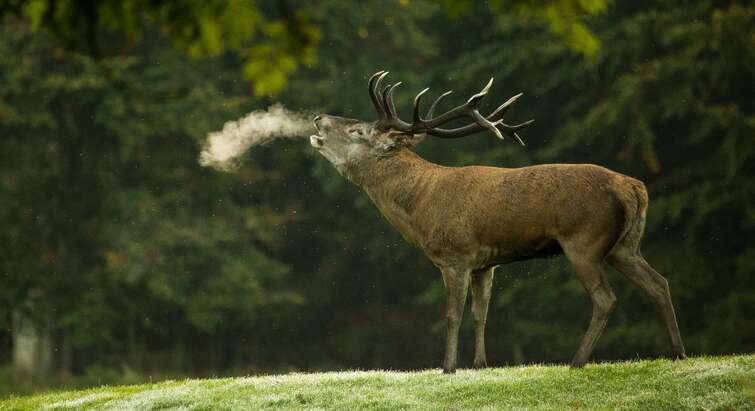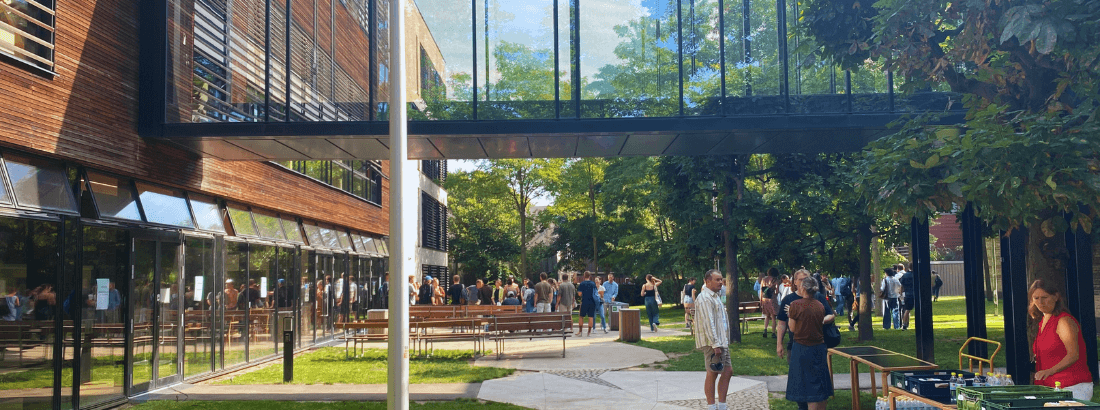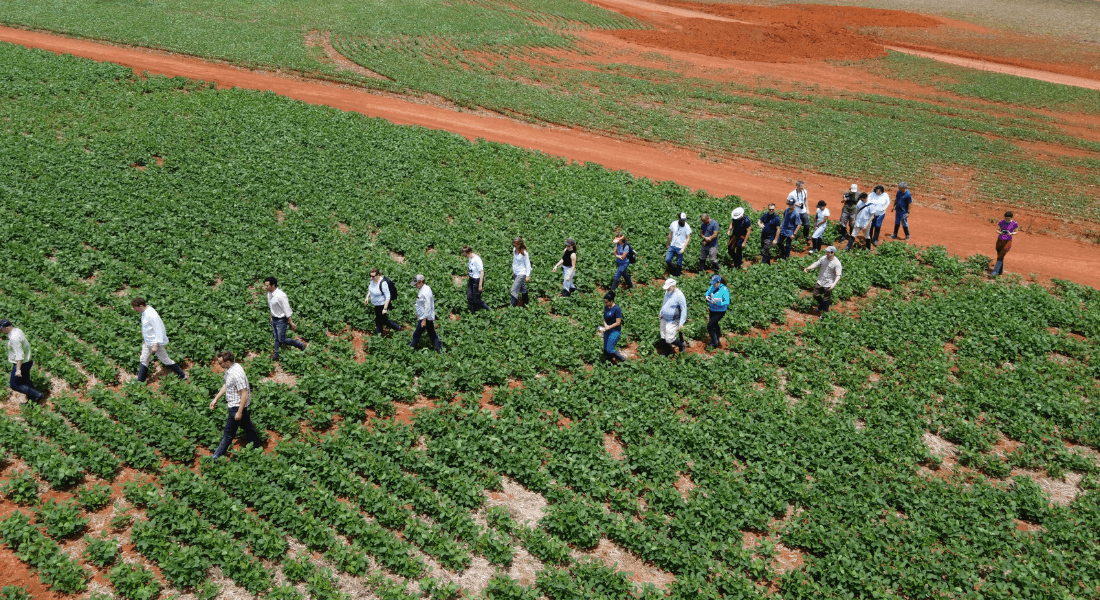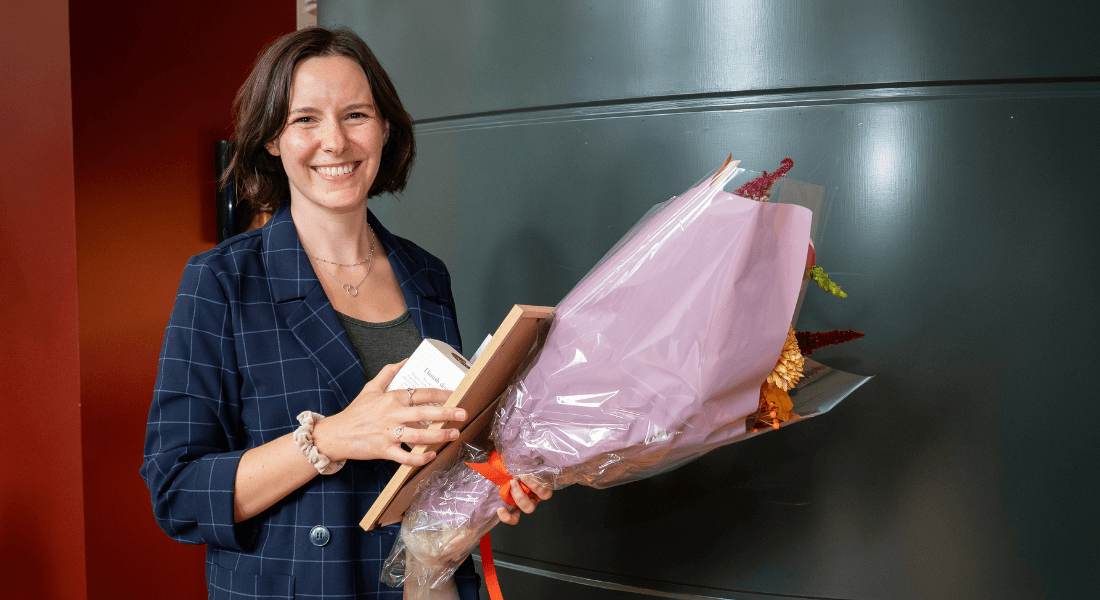Project title: Animal food sectors’ future: the triple challenges from income and demographic development, climate change and trade policy uncertainties
The multi-year research programme was funded by Norma og Frode Jacobsens Fond, Svineafgiftsfonden, Mælkeafgiftsfonden, Kvægafgiftsfonden, Fjerkræafgiftsfonden, and the University of Copenhagen.
Period: 2020-2023
IFRO coordinator: Wusheng Yu
IFRO researchers: Francesco Clora, Clara García Bouyssou, Lærke Godsk Jensbye, Jørgen Dejgård Jensen
About the project:
This project aims at understanding how income and demographic changes, climate change, and trade policy uncertainties drive the future development of the animal food sectors. A set of model-based projections of animal food demand, supply and trade at national and global levels will be conducted under alternative scenarios.
The animal food sector (e.g. beef, dairy, pork, and poultry) faces a multitude of challenges. Differential income, demographical, and consumer preference changes may increase demand from some parts of the world while stagnating demand from elsewhere. Heightened attentions to climate change may require the animal food sector to be an active participant of climate mitigation efforts. Trade conflicts and regional trade agreements add further uncertainties on how such products will be traded globally in the future. This projet uses data-driven and model-based economic analysis to develop a set of scenarios consisting of different configurations of the above-mentioned drivers, and projections of future market outcomes within these scenarios.
Work Packages
- WP1. Income, demographic changes and health guidelines and global/national animal food demand
- WP2. Climate change mitigation and global/national animal food production
- WP3. Uncertain globalization and global/bilateral trade patterns of animal food products
Workshops and conferences
- Climate change mitigation, dietary transition, and de-globalization: Implications for the animal food sector in Denmark and beyond
- Klimaforhandlinger, handelsmønstre og forbrugertrends: Hvad betyder det for den animalske fødevaresektor?
- Climate negotiations, trade patterns, and changing consumers: animal food sector under cross-wind?!
- Global demand, supply and trade patterns of animal food products: current state and uncertain future development
- Organized Session at the XVI Congress of the EAAE (European Association of Agricultural Economists)
Assessing the “First-stage Trade Deal” between the US and China: Implications on World Agrifood Trade Patterns and China’s Agricultural and Rural Policy Adjustment
Publications
Research reports and research articles
Bouyssou, C. G., Jensen, J. D., & Yu, W. (2024). Food for thought: A meta-analysis of animal food demand elasticities across world regions. Food Policy, 122, [102581]. https://doi.org/10.1016/j.foodpol.2023.102581
Bouyssou, C.G., Clora, F., Jensen, J., & Yu, W. (2023). Projecting demand elasticities for disaggregated animal food products under alternative Shared Socioeconomic Pathways. Contributed paper, 26th Annual Conference on Global Economic Analysis, June 2023, Bordeaux, France.
Bouyssou, C.G., Jensbye, L. G., Jensen, J. D., & Yu, W. (2021). The global animal food market: drivers and challenges. IFRO Report No. 298. (full report; English summary; Danish summary)
Clora, F., Corong, E., & Yu, W. (2023). A flexible Approach to Modeling Carbon Pricing and Carbon Border Adjustment in the GTAP-E model. Contributed paper, 26th Annual Conference on Global Economic Analysis, June 2023, Bordeaux, France.
Clora, F., Yu, W., & Corong, E. (2023). Alternative carbon border adjustment mechanisms in the European Union and responses: aggregate and within-coalition results. Energy Policy 174, 113454. https://doi.org/10.1016/j.enpol.2023.113454 (partially funded by this project)
Clora, F., Yu, W. (2023) Modeling The Impacts Of Alternative Globalization Scenarios On International Agricultural And Food Markets. Contributed Paper, the XVII EAAE Congress, Rennes, August 29-September 1, 2023.
Clora, F., Yu, W., Baudry, G., & Costa, L. (2021). Impacts of supply-side climate change mitigation practices and trade policy regimes under dietary transition: the case of European agriculture. Environmental Research Letters, 16(12), [124048].
Jensbye, L. G., & Yu, W. (2023). Agricultural emission reduction targets at country and global levels: a bottom-up analysis. Climate Policy. https://doi.org/10.1080/14693062.2023.2267021
Jensbye, L., Clora, F., & Yu, W. (2023). Exploring potential impacts of carbon border adjustment mechanisms and climate clubs in agriculture. Contributed paper, 26th Annual Conference on Global Economic Analysis, June 2023, Bordeaux, France.
Jensbye, L., Clora, F., & Yu, W. (2023). Modelling the potential to abate greenhouse gases from agriculture using detailed abatement technologies in a CGE model. Contributed paper, 26th Annual Conference on Global Economic Analysis, June 2023, Bordeaux, France.
Jensen, J.D. (2023) Has the 2022 food price spike reduced consumers’ economic incentive for a healthy diet? Contributed Paper, the XVII EAAE Congress, Rennes, August 29-September 1, 2023.
Han, M., Yu, W., Clora, F. (2022). Boom and Bust in China’s pig sector during 2018-2021: Recent recovery from the ASF shocks and longer-term sustainability considerations. Sustainability 14(11), [6784]. https://org/10.3390/su14116784
Yu, W. and J. D. Jensen (2022). Sustainability implications of rising global pork demand. Animal Frontiers, 12(6), pp56-60. https://doi.org/10.1093/af/vfac070.
Yu, W., & Schou, J. S. (2020). Sikring af fødevareforsyningen og en fri verdenshandel er afgørende under COVID-19. Tidsskrift for Landoekonomi, 206(1), 21-23.
Yu, W. (2020). The agricultural and food dimension of the ongoing trade conflicts and tentative agreement between the US and China. Tidsskrift for Landoekonomi, 206(2), 49-60.
Progress reports
Bouyssou, C.G., L. G., Jensen, J. D., & Yu, W. (2022). International cross-sectional data and future meat and dairy consumption. (WP1 status report for 2021; available upon request).
Jensbye, L.G. and Yu. W. (2022) Climate change mitigation and global and national animal food production: a cluster analysis on setting agricultural emission targets at country level. (WP2 status report for 2021; available upon request).
Clora F. and Yu, W. (2022) Uncertain globalization and global/bilateral trade patterns of animal food products (WP3 status report for 2021; available upon request).
Popular dissemination
Yu, W., & Jensen, J. D. (2021, Nov 15). To jokere bestemmer kursen for Kinas grisemarked. landbrugsavisen.dk. https://landbrugsavisen.dk/svin/professorer-jokere-bestemmer-kursen-kinas-grisemarked
Yu, W., & Jensen, J. D. (2021, Aug 18). Vi skal spise mindre kød, men der er ét problem: Forskere ved ikke, hvordan klimaet vil påvirke forbruget. Altinget.dk. https://www.altinget.dk/foedevarer/artikel/vi-skal-spise-mindre-koed-men-der-er-et-problem-forskere-ved-ikke-hvordan-klimaet-paavirker-vores-adfaerd
Other related publications (mainly funded by other projects)
Clora, F., Yu, W., Baudry, G., & Costa, L. (2021). Impacts of supply-side climate change mitigation practices and trade policy regimes under dietary transition: the case of European agriculture. Environmental Research Letters, 16(12), [124048]. https://doi.org/10.1088/1748-9326/ac39bd





